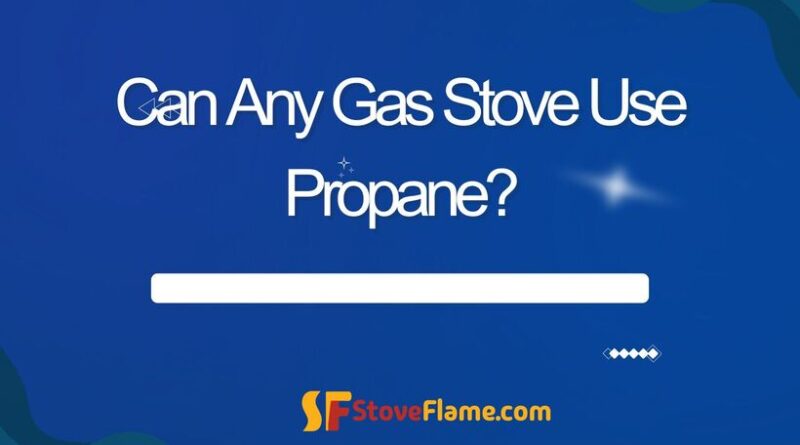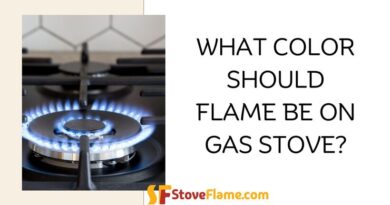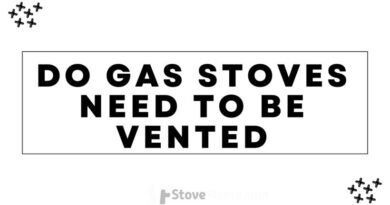Can Any Gas Stove Use Propane?
Gas stoves have long been a staple in modern kitchens, providing a convenient and efficient way to cook meals. While the most common fuel used for gas stoves is natural gas, many homeowners and chefs are turning to propane as an alternative. Propane, a type of liquefied petroleum gas, offers several benefits such as cost-effectiveness and versatility, making it a popular choice for cooking.
However, for those who already own a gas stove designed for natural gas, the question arises: can any gas stove use propane? In this article, we will explore the compatibility of gas stoves with propane and provide a comprehensive answer to this common query. We will also delve into the differences between natural gas and propane and offer tips on converting your gas stove to accommodate propane.
Whether you are a seasoned cook or a curious homeowner, understanding the capabilities and limitations of your gas stove is crucial to ensure safe and efficient cooking.
Explanation of Gas Stoves
Gas stoves are an essential appliance in many kitchens, offering a quick and efficient way to cook food. They work by burning natural gas or propane to produce a controlled flame that heats cookware placed on the stove’s burners. When you turn the knob on a gas stove, it opens a valve to release gas into the burner, where it mixes with air before igniting to create a flame.
This flame provides instant heat that can be easily adjusted by turning the knob to increase or decrease the flow of gas. Gas stoves are preferred by many chefs and home cooks for their precise temperature control, allowing for more accurate cooking.
Additionally, gas stoves are often more cost-effective to operate than electric stoves, as natural gas is generally cheaper than electricity. However, it is important to remember that gas stoves require proper ventilation to prevent the build-up of carbon monoxide, a colorless and odorless gas that can be harmful if inhaled in large quantities. Regular maintenance and cleaning of gas stoves are crucial to ensure safe and efficient operation.
Differences between Natural Gas and Propane
Understanding the differences between natural gas and propane is crucial when it comes to making informed decisions for your home or business. Natural gas is a fossil fuel that is extracted from underground gas deposits, while propane is a byproduct of both natural gas processing and petroleum refining.
One key distinction between the two is their storage and transportation methods. Natural gas is usually delivered through pipelines that are connected to your property, whereas propane is typically stored in portable tanks and delivered to your location as needed.
Another important difference is the energy content: propane contains more energy per unit volume compared to natural gas, making it a more efficient option for certain applications. Additionally, propane is often used in rural areas where natural gas pipelines are not available.
It is essential to consider these factors when choosing between natural gas and propane for heating, cooking, or other energy needs. By understanding these distinctions, you can select the most suitable and cost-effective option for your specific requirements.
Can Any Gas Stove Use Propane?
When it comes to using propane with a gas stove, it’s important to note that not all gas stoves can use propane as a fuel source. However, many modern gas stoves are designed to be versatile and can easily be converted to use propane with the right equipment and adjustments.
If you’re unsure whether your gas stove can use propane, the best course of action is to consult the owner’s manual or contact the manufacturer directly for guidance. Additionally, you may also want to consider seeking the help of a professional technician or plumber to safely and properly make the necessary modifications to your gas stove.
It’s crucial to prioritize safety when dealing with gas appliances, so taking the time to ensure that your gas stove is compatible with propane and making any needed conversions correctly is key. By doing so, you can enjoy the benefits of using propane with your gas stove while also ensuring that everything is set up correctly for efficient and safe operation.
What is Pressure and BTU Output?
Understanding the concepts of pressure and BTU output is crucial when it comes to optimizing the performance of your heating or cooling system. Pressure refers to the force exerted against a surface by a fluid, such as air or water, in a closed system. It is measured in pounds per square inch (PSI) and plays a significant role in determining the efficiency and effectiveness of your HVAC system.
On the other hand, BTU (British Thermal Unit) output is a measure of the amount of heat energy produced by your heating system. It is essential to know the BTU output of your system to ensure that it is capable of meeting the heating demands of your space.
Proper maintenance and regular monitoring of pressure levels and BTU output can help prevent potential issues and ensure that your system operates at its optimal level.
Steps for Converting a Gas Stove to Use
If you are considering converting your gas stove to use propane, there are a few important steps you should follow to ensure a safe and successful transition. First and foremost, turn off the gas supply to the stove and disconnect it from the gas line. Make sure to carefully follow the manufacturer’s instructions for disconnecting the stove to avoid any potential hazards.
Next, you will need to install a propane conversion kit, which typically includes new gas jets and orifices that are designed for propane use. It is crucial to use the correct conversion kit that is compatible with your specific stove model to prevent any safety issues.
Once the conversion kit is installed, carefully adjust the burner flames to ensure they are burning cleanly and evenly. Finally, test the stove by turning it on and checking for any gas leaks or unusual smells. If you are unsure about any of these steps, it is always best to consult a professional gas technician to assist you with the conversion process. By following these steps carefully, you can safely convert your gas stove to use propane and enjoy its benefits.
Benefits of Using Propane on a Gas Stove
When it comes to cooking appliances, using propane on a gas stove can offer numerous benefits that are worth considering. One of the main advantages of using propane is its versatility and efficiency. Propane burns hotter and more evenly than other fuel sources, allowing for quicker cooking times and more precise temperature control.
In addition, propane is a clean-burning fuel, which means it produces fewer emissions and is better for the environment compared to other fossil fuels. Another benefit of using propane on a gas stove is its reliability. Propane is readily available and can be stored for long periods without losing its effectiveness. This can be especially useful in areas prone to power outages or where natural gas lines are not available.
Furthermore, propane is a cost-effective option for cooking, as it tends to be more affordable than electricity or other fuel sources.
Safety Features on Gas Stoves
Gas stoves are an essential part of many kitchens, providing a reliable source of heat for cooking. However, it is important to be aware of the safety features that come with gas stoves to ensure that you can cook with peace of mind.
One key safety feature to look out for is automatic shut-off valves, which can help prevent gas leaks in case a flame goes out. This feature is crucial in ensuring that gas doesn’t continue to flow into your kitchen, minimizing the risk of fire or explosion.
Additionally, flame failure devices are another important safety feature that can help detect if a burner is not lit properly, cutting off the gas supply to prevent any potential hazards. When using a gas stove, always make sure to keep the area well-ventilated to prevent the build-up of carbon monoxide, a colorless and odorless gas that can be harmful if inhaled in large quantities.
By being aware of these safety features and following proper safety precautions, you can enjoy the convenience of cooking with a gas stove while minimizing any potential risks.
Conclusion
To sum it all up, while not all gas stoves are compatible with propane, many can be converted with the right tools and knowledge. It’s always best to consult with a professional or refer to the manufacturer’s instructions before attempting to switch to propane. With proper precautions and understanding, you can enjoy the benefits of using propane on your gas stove.
I'm Daniel Miller, the proud owner of StoveFlame. With over five years of experience in this dynamic field, I've honed my skills and passion for delivering top-notch quality and accuracy in everything I do.





